We rank the best NBA basketball teams of all time by analyzing their dominance in the regular season, playoff success, roster strength, and lasting impact on the game. This list goes beyond championships, highlighting how each team shaped basketball’s evolution.
The ‘96 Bulls set records with their historic season, while the ‘17 Warriors revolutionized offensive play. Each team on this list stands out for its winning percentage, star power, tactical innovations, and legacy. By comparing teams across different eras, we provide a clear and compelling perspective on what defines true NBA greatness.
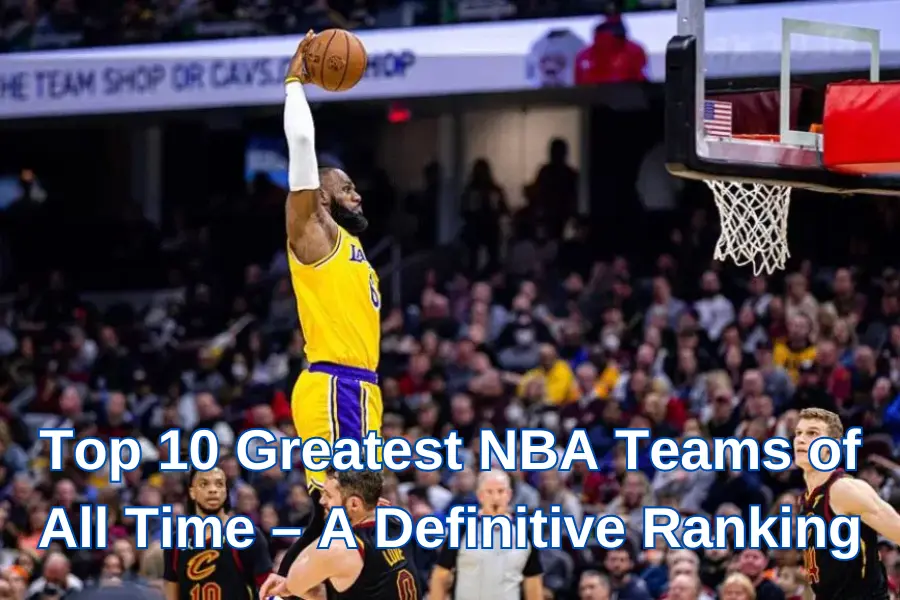
The 10 Best NBA Teams of All Time
We explore the most dominant teams in NBA history, from the 2012-13 Miami Heat’s Big Three to the 1982-83 76ers and the 2000-01 Lakers led by Shaq and Kobe. These legendary squads set new standards for excellence, alongside dynasties like the Showtime Lakers and Michael Jordan’s Bulls of the early ’90s.
What sets them apart?
- Elite offense – Scoring efficiency and versatility
- Lockdown defense – Perimeter control and rim protection
- Legendary coaches – Masterminds like Phil Jackson and Pat Riley
- Leadership – On-court generals like Magic Johnson and Larry Bird
- Balanced rosters – Stars with complementary skill sets
- Playoff dominance – Clutch performances and championship success
2012-13 Miami Heat – The Big Three Dominance
The 2012-13 Miami Heat, led by the formidable triumvirate of LeBron James, Dwyane Wade, and Chris Bosh, stands as a paragon of NBA excellence. This iteration of the ‘Big Three’ reached its zenith in their third season together, establishing a franchise record with 66 victories and orchestrating a remarkable 27-game winning streak, second only to the 1971-72 Los Angeles Lakers’ 33-game run.
The Heat’s dominance was quantifiable, boasting an offensive efficiency rating of 110.3 points per 100 possessions and a defensive rating of 100.5, exemplifying their comprehensive basketball prowess. LeBron James, the team’s cornerstone, secured the NBA Most Valuable Player award with averages of 26.8 points, 8.0 rebounds, and 7.3 assists per game. His versatility as a point forward redefined positional norms in the league.
Complementing James were Dwyane Wade, a prolific scorer averaging 21.2 points per game, and Chris Bosh, who contributed 16.6 points and 6.8 rebounds per contest. The triumvirate’s synergy was pivotal to Miami’s success, with each star sacrificing individual accolades for collective achievement.
Head Coach Erik Spoelstra’s innovative small-ball strategy, featuring Shane Battier as a stretch four, revolutionized NBA tactics. This approach maximized floor spacing and defensive switchability, setting a new paradigm for roster construction and on-court strategies league-wide.
The Heat’s postseason campaign culminated in a grueling seven-game NBA Finals victory over the San Antonio Spurs, a series that showcased both teams’ tactical acumen and resilience. Ray Allen’s clutch three-pointer in Game 6 epitomized the Heat’s never-say-die attitude and remains an iconic moment in Finals history.
This Miami squad’s legacy extends beyond their championship hardware. They redefined player empowerment in the NBA, showcasing how superstar collaborations could be forged through free agency. Their impact on offensive schemes, defensive versatility, and position-less basketball continues to influence modern NBA strategy.
The 2012-13 Heat’s place among the pantheon of great NBA teams is secure, their season serving as a benchmark for excellence in professional basketball. Their combination of star power, tactical innovation, and clutch performance under pressure cements their status as one of the most formidable and influential teams in NBA annals.
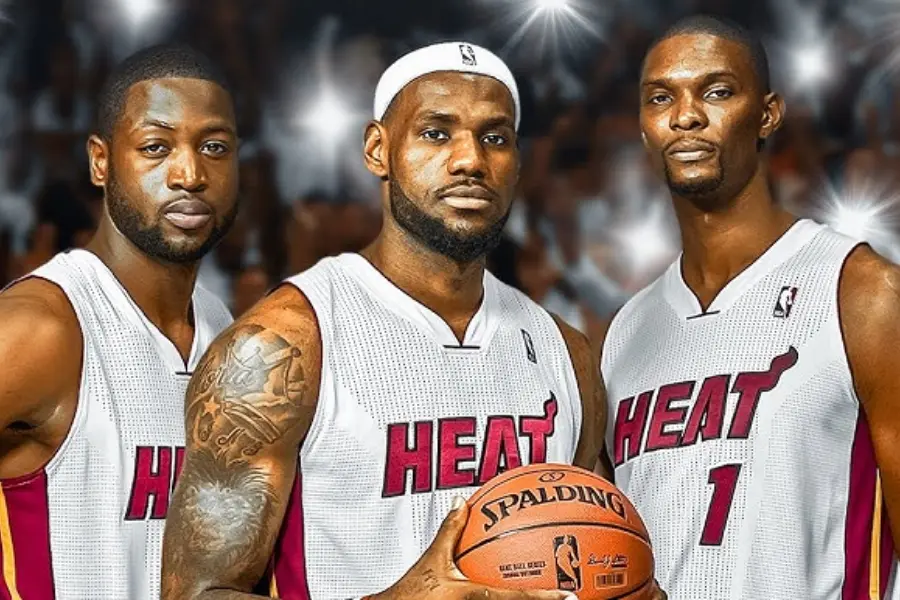
1982-83 Philadelphia 76ers – Dr. J and Moses Malone Era
The 1982-83 Philadelphia 76ers, spearheaded by the legendary tandem of Julius ‘Dr. J’ Erving and Moses Malone, revolutionized NBA basketball with their unparalleled dominance. Posting a stellar 65-17 regular-season record and an almost flawless 12-1 playoff run, the team showcased basketball excellence at its pinnacle.
Malone’s acquisition proved transformative, elevating the squad’s frontcourt prowess with his elite rebounding and scoring, perfectly complementing Erving’s all-around brilliance. Their offensive efficiency (111.1 rating) and defensive tenacity (102.9 rating) epitomized their two-way superiority on the hardwood.
The Sixers’ starting five, featuring floor general Maurice Cheeks, sharpshooter Andrew Toney, and versatile forward Marc Iavaroni, exemplified cohesion and adaptability. In the postseason crucible, Malone’s herculean efforts (26.0 points and 15.8 rebounds per game) alongside Erving’s consistent production (18.4 points and 3.0 assists) propelled the team to new heights.
The coup de grâce came in the form of a resounding 4-0 sweep against the formidable Los Angeles Lakers in the NBA Finals, with an average victory margin of 9.5 points, solidifying their legacy among the pantheon of all-time great NBA dynasties.
This Sixers squad embodied basketball synergy, blending individual brilliance with team-oriented play. Their fast-break offense, anchored by Erving’s aerial acrobatics and Malone’s powerful post presence, created mismatches that confounded opponents. Defensively, their suffocating pressure and rebounding dominance often ignited their transition game, creating a virtuous cycle of success.
The team’s success extended beyond the court, galvanizing the Philadelphia fanbase and leaving an indelible mark on NBA history. Their championship run demonstrated the importance of roster construction, coaching acumen, and player chemistry in achieving basketball immortality. The 1982-83 Sixers remain a benchmark for excellence, their accomplishments serving as a yardstick for subsequent NBA powerhouses.
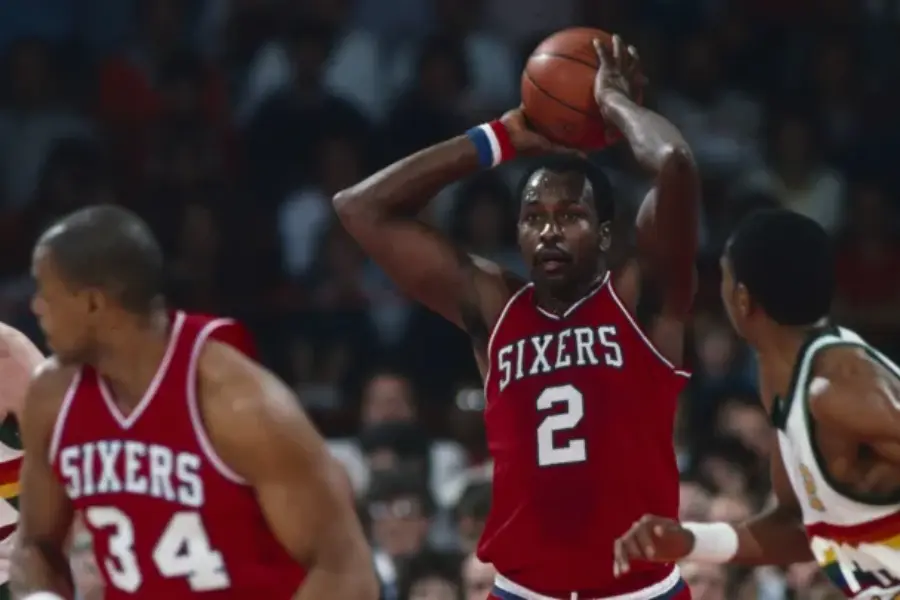
2000-01 Los Angeles Lakers – Shaq & Kobe Dynasty
Shifting our focus from the Philadelphia 76ers’ dominance to the dawn of the new millennium, we encounter another basketball juggernaut in NBA history: the 2000-01 Los Angeles Lakers, spearheaded by the formidable duo of Shaquille O’Neal and Kobe Bryant.
This Lakers team exemplified unparalleled supremacy, compiling a 56-26 regular season record before embarking on a historic playoff campaign. They swept through the Western Conference, going undefeated (11-0) against the Portland Trail Blazers, Sacramento Kings, and San Antonio Spurs. Their sole postseason setback occurred in Game 1 of the NBA Finals against the Philadelphia 76ers, after which they clinched four consecutive victories to secure the championship.
Shaquille O’Neal, the team’s dominant center, averaged an impressive 28.7 points and 12.7 rebounds per game, while shooting guard Kobe Bryant contributed 28.5 points per contest. The Lakers’ offensive prowess was evident in their 108.4 offensive rating, while their stifling defense resulted in a 101.7 defensive rating, culminating in a net rating of +6.7.
Head coach Phil Jackson’s implementation of the triangle offense, coupled with the team’s suffocating defensive schemes, rendered this Lakers squad nearly invincible on the hardwood. The synergy between O’Neal’s interior dominance and Bryant’s perimeter scoring created a basketball powerhouse that opponents struggled to contain.
Their complementary skill sets, combined with a supporting cast including small forward Rick Fox, power forward Horace Grant, and point guard Derek Fisher, formed a well-balanced team capable of excelling in various facets of the game. This Lakers team’s achievements solidified their place in the pantheon of NBA dynasties, showcasing a blend of individual brilliance and collective excellence that few teams in league history have matched. Their championship run served as a testament to the effectiveness of star power, strategic coaching, and team cohesion in professional basketball.
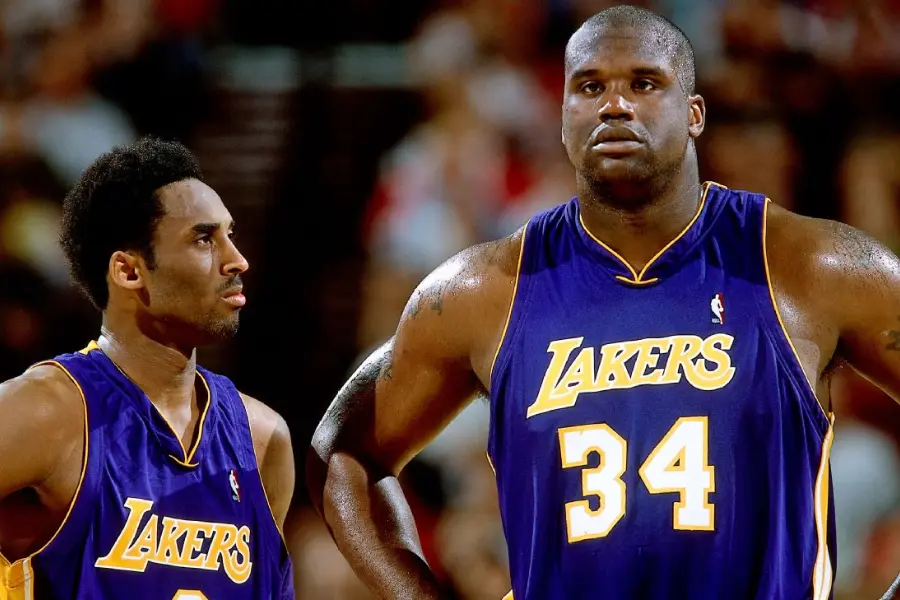
1986-87 Los Angeles Lakers – Showtime Lakers
The 1986-87 Los Angeles Lakers, epitomizing the ‘Showtime’ era, dominated the National Basketball Association (NBA) with a stellar 65-17 regular season record and an impressive 15-3 playoff run, culminating in their fourth championship of the 1980s.
NBA Hall of Famer Earvin ‘Magic’ Johnson showcased his versatility with triple-double prowess (23.9 points per game, 12.2 assists per game, 6.3 rebounds per game), while fellow Hall of Famer Kareem Abdul-Jabbar maintained efficient scoring (17.5 points per game, 56.2% field goal percentage), anchoring the team’s high-octane offense.
The Lakers’ offensive juggernaut boasted a league-leading 117.8 offensive rating and a net rating of +9.3, demonstrating their dominance on both ends of the court. James Worthy, another future Hall of Famer, emerged as a key contributor, averaging 19.4 points per game and earning his first All-Star selection, adding depth to the star-studded roster.
Under the guidance of legendary coach Pat Riley, the Lakers’ up-tempo style, characterized by fast breaks and precision passing, overwhelmed opponents. This fast-paced, high-scoring approach became synonymous with the ‘Showtime’ moniker, revolutionizing NBA basketball and influencing future generations of players and teams.
The Lakers’ playoff dominance included sweeps of the Denver Nuggets and Seattle SuperSonics before a climactic NBA Finals showdown with their arch-rivals, the Boston Celtics. In a redemptive performance, the Lakers dispatched the Celtics in six games, avenging their 1985-86 playoff loss and further cementing their legacy as one of the greatest teams in NBA history.
This iteration of the Showtime Lakers exemplified the perfect blend of individual talent, team chemistry, and innovative coaching, setting a new standard for excellence in professional basketball and solidifying the Lakers’ dynasty of the 1980s.
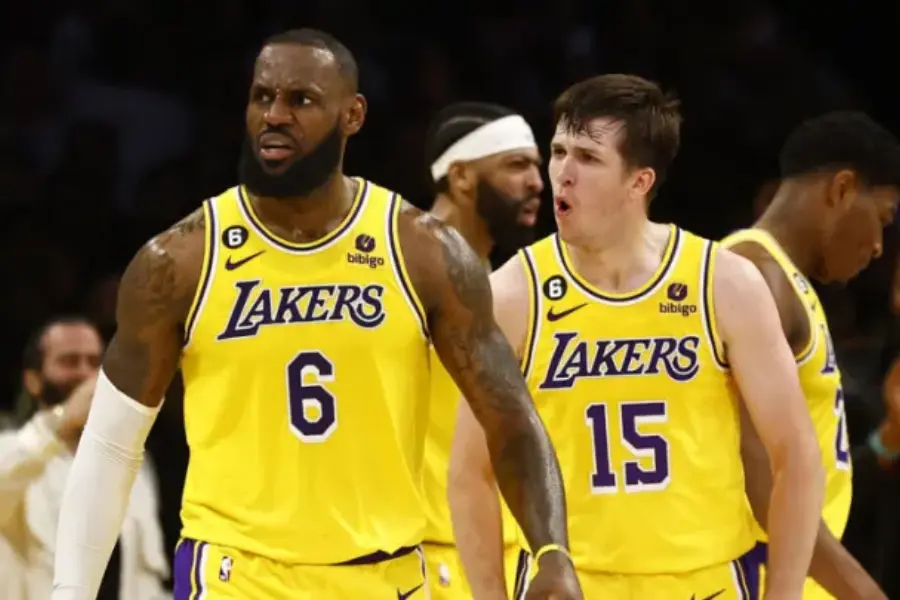
1990-91 Chicago Bulls – The Beginning of MJ’s Reign
The 1990-91 Chicago Bulls revolutionized NBA history, inaugurating Michael Jordan’s reign and the Bulls’ dynasty with their first championship. This iconic team, led by the incomparable Jordan at his athletic zenith, compiled an impressive 61-21 regular season record and a dominant 15-2 playoff run.
Jordan, the paragon of basketball excellence, averaged a staggering 31.5 points, 6.0 rebounds, and 5.5 assists per game at age 27. His ascendancy was complemented by Scottie Pippen’s emergence as a bona fide star, contributing 17.8 points and 7.3 rebounds per contest. The synergy between these two superstars became the cornerstone of the Bulls’ success.
Coach Phil Jackson’s innovative triangle offense, a complex system emphasizing spacing and ball movement, proved to be an unstoppable force. This offensive juggernaut was matched by a suffocating defense, allowing a mere 101.0 points per game, showcasing the team’s two-way dominance.
In the playoffs, the Bulls’ path to glory was paved with victories over formidable Eastern Conference foes: the New York Knicks, Philadelphia 76ers, and the reigning champions, the Detroit Pistons. The Bulls’ triumph over the Pistons, their long-time nemesis, marked a changing of the guard in the NBA hierarchy.
The NBA Finals saw the Bulls face off against the Los Angeles Lakers, led by Magic Johnson. Jordan’s Finals performance was nothing short of legendary, averaging 31.2 points on an efficient 56% shooting. This virtuoso display cemented Jordan’s status as the premier player in the league and foreshadowed the Bulls’ impending decade of dominance.
This seminal 1990-91 season laid the foundation for the Bulls’ dynasty, characterized by their unparalleled success throughout the 1990s. It marked the beginning of an era that would redefine excellence in professional basketball and elevate Michael Jordan to the pantheon of sports legends.
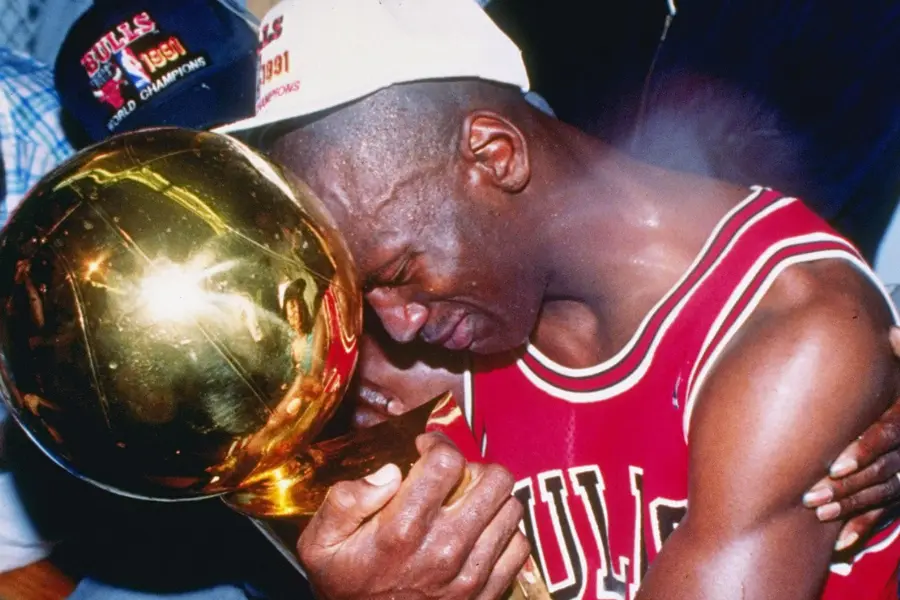
1985-86 Boston Celtics – Bird’s Legendary Squad
The 1985-86 Boston Celtics, a paragon of basketball excellence, etched their legacy as one of the NBA’s all-time great teams. Their dominance was evident in their record-setting 67-15 regular season and near-flawless 15-3 playoff run, culminating in an NBA championship. The team’s success pivoted around the transcendent Larry Bird, who exemplified versatility with averages of 25.8 points, 9.8 rebounds, and 6.8 assists per game.
This Celtics squad’s prowess was quantifiable, boasting a league-leading offensive rating of 111.8 and a formidable defensive rating of 102.6, resulting in an impressive net rating of 9.2. The team’s frontcourt, an assemblage of basketball virtuosos, featured the triumvirate of Bird, Kevin McHale, and Robert Parish. This formidable trio was complemented by the backcourt synergy of Danny Ainge and Dennis Johnson, creating a starting five that harmonized individual brilliance with cohesive teamwork.
The Celtics’ depth was epitomized by Bill Walton, a former MVP, coming off the bench to fortify an already robust roster. This depth contributed significantly to their near-invincibility at home, amassing an unprecedented 40-1 record at the Boston Garden. The team’s composition of Hall of Fame talent, coupled with their symbiotic on-court chemistry, solidified their status as a basketball juggernaut.
While Michael Jordan’s Chicago Bulls would later define the 1990s, the ’85-’86 Celtics set a benchmark for team excellence that transcends eras. Their collective achievements – from individual accolades to team records – create a comprehensive narrative of basketball supremacy. This Celtics team remains a touchstone for discussions on organizational construction, player development, and the fusion of individual talent with team-oriented strategies in professional basketball.
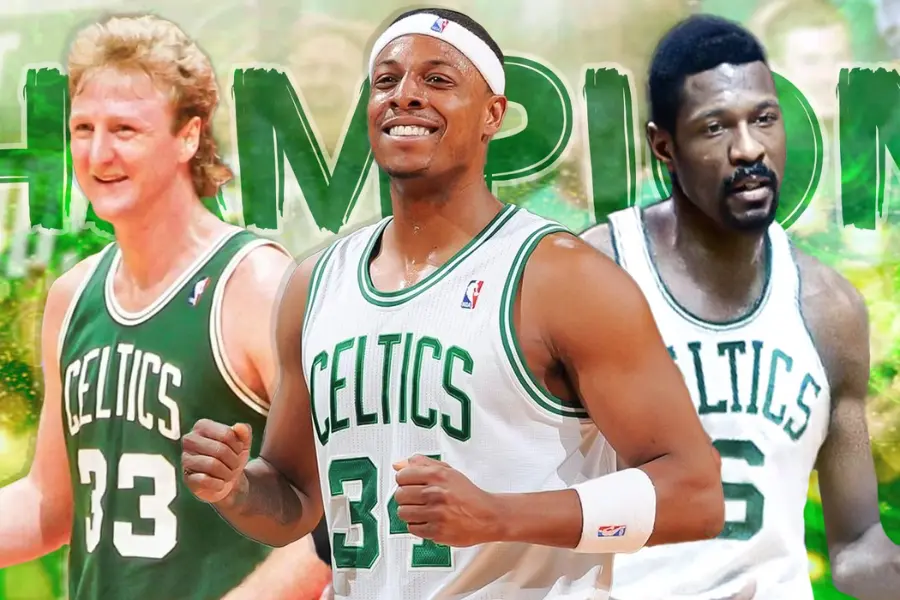
1970-71 Milwaukee Bucks – Kareem and Oscar’s Masterpiece
The 1970-71 Milwaukee Bucks stand as a paragon of NBA excellence, epitomizing the perfect fusion of youthful vigor and seasoned expertise. This iconic team, led by the formidable tandem of 24-year-old Kareem Abdul-Jabbar (né Lew Alcindor) and 32-year-old Oscar Robertson, blazed through the regular season with an impressive 66-16 record, showcasing their dominance in professional basketball.
Their supremacy extended into the postseason, where they suffered only two defeats en route to claiming the championship title. Abdul-Jabbar, a towering center and offensive juggernaut, averaged a staggering 31.7 points and 16.0 rebounds per game. Meanwhile, Robertson, the consummate floor general, orchestrated the offense with surgical precision, contributing 19.4 points and 8.2 assists per game.
The Bucks’ statistical prowess was equally impressive, boasting an offensive rating of 107.0 and a defensive rating of 94.0, resulting in a net rating of +13.0. This remarkable differential underscores their comprehensive excellence on both ends of the court, a hallmark of truly great teams.
The team’s success can be attributed to several factors:
– Synergy: The complementary skills of Abdul-Jabbar and Robertson created a symbiotic relationship on the court.
– Versatility: The ability to dominate both offensively and defensively made them a multi-faceted threat.
– Leadership: The combination of Abdul-Jabbar’s emerging stardom and Robertson’s veteran savvy provided a balanced leadership dynamic.
– Consistency: Their regular season success translated seamlessly into postseason dominance.
In the pantheon of NBA greats, the 1970-71 Milwaukee Bucks team stands as a paragon of basketball excellence, setting a standard for future generations to aspire to. Their blend of individual brilliance, team cohesion, and statistical dominance makes them an indelible part of NBA lore, worthy of consideration among the greatest teams in the sport’s history.
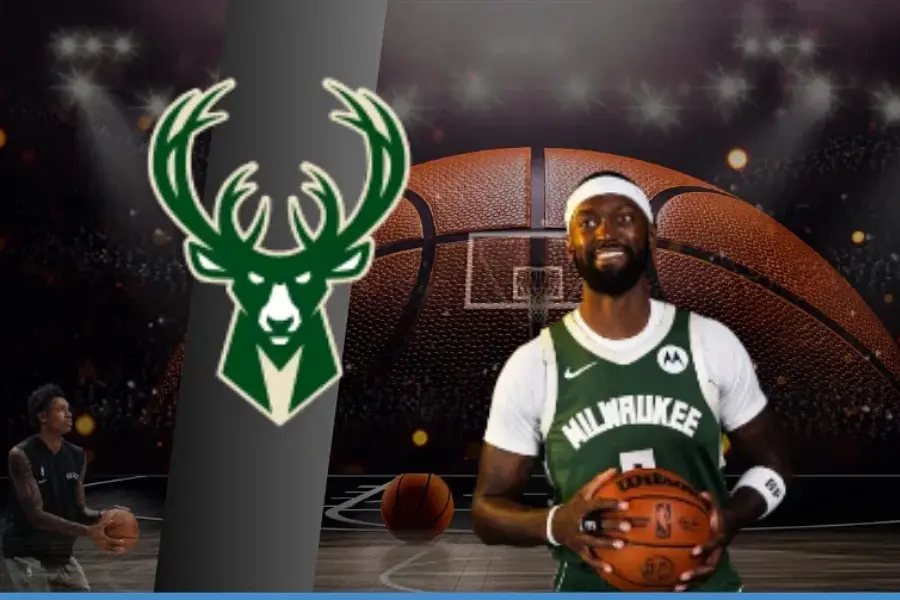
1971-72 Los Angeles Lakers – Record-Breaking Season
The 1971-72 Los Angeles Lakers established an unparalleled benchmark in National Basketball Association (NBA) annals, obliterating records with their unprecedented 33-game winning streak and an astounding 69-13 regular season record.
This juggernaut, spearheaded by the triumvirate of Wilt Chamberlain, Jerry West, and Gail Goodrich, exhibited dominance on both offensive and defensive fronts. The team’s prolific scoring, averaging 121 points per game, coupled with a stifling defense that limited opponents to a mere 108.7 points, resulted in a league-leading +12.3 point differential.
Head coach Bill Sharman’s revolutionary implementation of the fast break offense metamorphosed the Lakers’ playing style. Chamberlain’s pivot to rebounding and defensive prowess, West’s exceptional playmaking (leading the league with 9.7 assists per game), and Goodrich’s scoring virtuosity (25.9 PPG) created a symbiotic balance.
This cohesive unit’s success reached its apex with an NBA championship, vanquishing the New York Knicks in a decisive five-game series. Their regular season win percentage (.841) stood as an NBA record for nearly a quarter-century, underscoring the team’s historical significance.
The Lakers’ offensive strategy, characterized by rapid ball movement and quick transitions, became a prototype for future NBA teams. Chamberlain’s role transformation from primary scorer to defensive anchor exemplified the team’s adaptability and selflessness. West’s moniker ‘Mr. Clutch’ was further cemented during this season, while Goodrich’s sharpshooting provided consistent perimeter threat.
This Lakers squad not only dominated their contemporaries but also left an indelible mark on basketball strategy and team dynamics. Their record-breaking season serves as a paragon of excellence in professional basketball, influencing coaching philosophies, player development, and team-building strategies for generations to come.
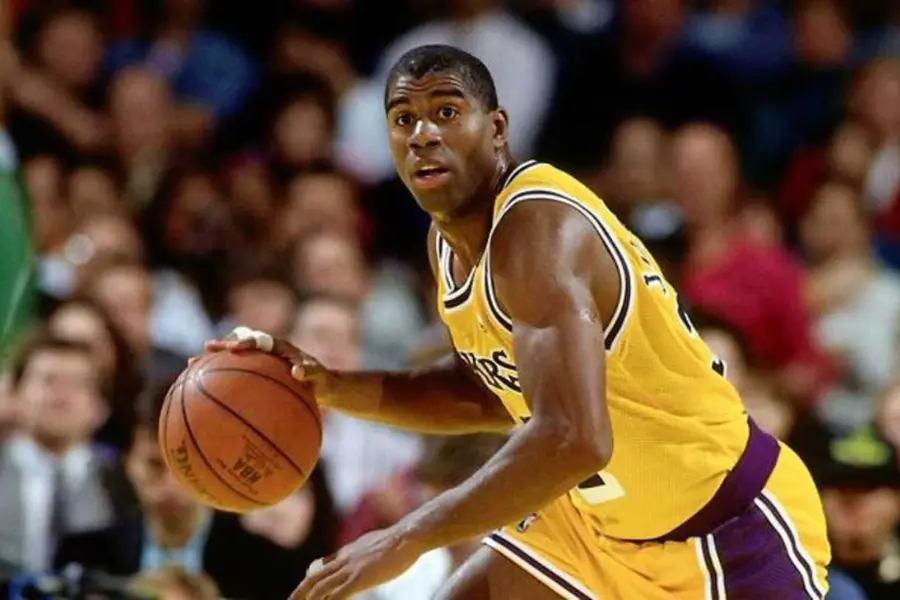
2016-17 Golden State Warriors – The Modern Superteam
The 2016-17 Golden State Warriors redefined NBA dominance, showcasing unprecedented success with a 67-15 regular season record and a near-perfect 16-1 playoff run. Their +11.6 net rating and league-leading 115.9 offensive rating exemplified their unparalleled efficiency.
The team’s success pivoted on their ‘Death Lineup,’ a versatile quintet featuring Stephen Curry (two-time MVP), Klay Thompson (elite shooter), Kevin Durant (former MVP), Andre Iguodala (Finals MVP), and Draymond Green (Defensive Player of the Year). This lineup’s positional flexibility enabled seamless defensive switching and offensive floor spacing, creating mismatches across all positions.
Offensively, the Warriors exhibited exceptional marksmanship, boasting a true shooting percentage of 59.6% and an effective field goal percentage of 56.3%. These metrics underscore their ability to convert high-percentage shots and maximize scoring opportunities. Defensively, they stifled opponents with a 101.1 defensive rating, ranking second in the league. This two-way dominance was further amplified by their ability to generate turnovers (15.0 opponent TOV%) while limiting their own (13.4 TOV%), showcasing their ball security and disruptive defensive capabilities.
The Warriors’ roster construction epitomized the modern NBA superteam concept, blending multiple superstars with complementary role players. Their playing style, characterized by rapid ball movement, three-point proficiency, and positionless basketball, revolutionized offensive strategies league-wide. Defensively, their ability to switch on screens and contest shots effectively neutralized traditional offensive schemes.
This iteration of the Warriors, often referred to as a basketball juggernaut or dynastic team, solidified their place among the NBA’s all-time great squads. Their combination of star power, efficient scoring, defensive tenacity, and innovative tactics not only dominated the 2016-17 season but also left an indelible mark on basketball strategy and team construction philosophies in the modern era.
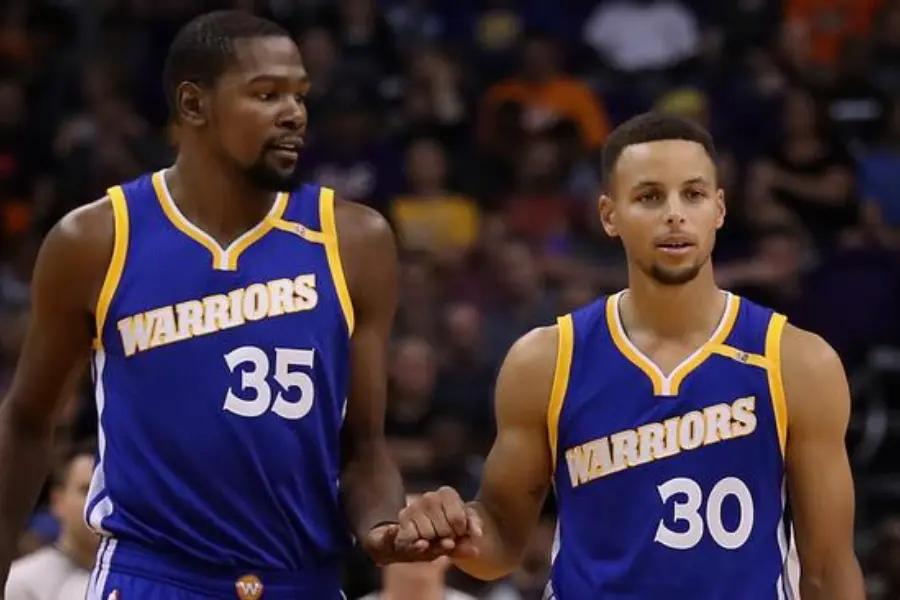
1995-96 Chicago Bulls – The Greatest Team Ever?
When discussing all-time great NBA teams, the 1995-96 Chicago Bulls stand out as a paragon of basketball excellence, shattering records with their unprecedented 72-10 regular season and dominant 15-3 playoff run.
Led by the incomparable Michael Jordan, widely regarded as the greatest basketball player of all time, who averaged an impressive 30.4 points per game, the Bulls boasted a stellar supporting cast including All-Star forward Scottie Pippen and rebounding specialist Dennis Rodman.
The team’s defensive prowess was unparalleled in the league, allowing a mere 92.9 points per game while scoring an average of 105.2. Their net rating of +13.4 remains the highest in NBA history, a testament to their overall dominance.
The Bulls excelled on both ends of the court, ranking first in offensive rating (115.2) and third in defensive rating (101.8), showcasing their well-rounded and formidable gameplay.
With a playoff point differential of +10.6, the Bulls steamrolled through the postseason, demonstrating their ability to elevate their performance when it mattered most. Their championship run culminated in a 4-2 Finals victory over the Seattle SuperSonics, solidifying their place in basketball lore.
The 1995-96 Bulls exemplified team synergy, combining individual talents with tactical brilliance under the guidance of legendary coach Phil Jackson. Their triangle offense, a strategic system emphasizing spacing and ball movement, proved nearly unstoppable when executed by Jordan, Pippen, and their teammates.
This Bulls team not only dominated statistically but also left an indelible mark on basketball culture, inspiring a generation of players and fans alike. Their season stands as a benchmark for team success in professional sports, often used as a measuring stick for subsequent NBA dynasties and championship contenders.
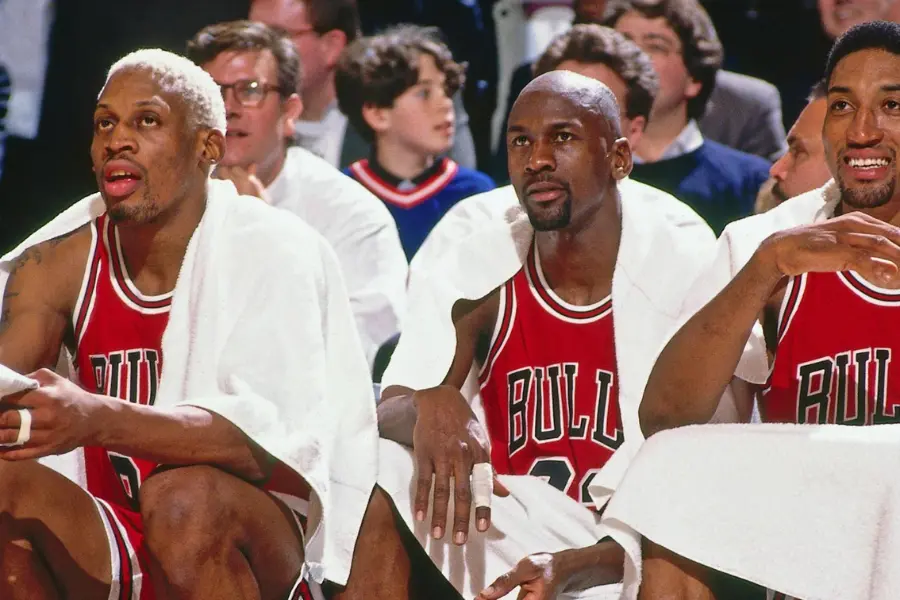
Wrap up
Throughout NBA history, certain teams have redefined greatness, leaving an enduring legacy. From the 1995-96 Chicago Bulls’ 72-win dominance to the Showtime Lakers’ electrifying play, these squads showcased exceptional talent, innovative strategies, and a championship mindset.
When ranking the best NBA basketball teams of all time, we consider multiple titles, record-breaking seasons, and game-changing styles—from the Celtics’ 1960s dynasty to the Warriors’ three-point revolution—highlighting how these teams shaped basketball’s evolution. Their influence extends beyond stats, impacting coaching and player development across generations.
While debates over the greatest teams persist, these legendary squads have set lasting benchmarks for excellence, inspiring future NBA franchises.
